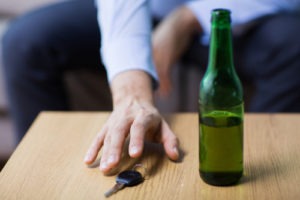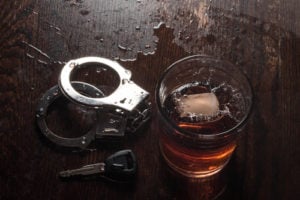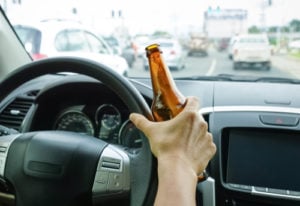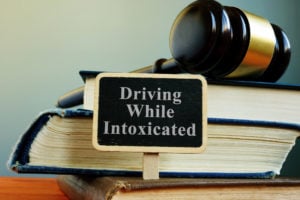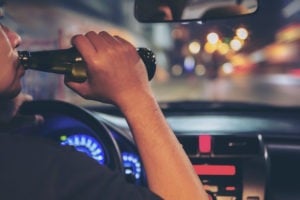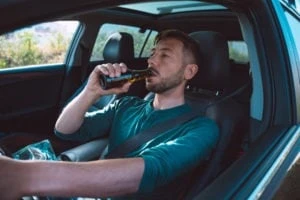
Depending on your age, you may face either a DWI (driving while intoxicated) or a DUI (driving under the influence) charge if you operated a vehicle while intoxicated in Texas. The difference between DWI and DUI in Texas laws applies to the age of the charged driver. If you’re 21 or older, the DWI charge will apply to you. Meanwhile, if you’re under 21, the DUI charge could apply or the DWI charge, it’s up to the officer. In general, a DWI charge is more serious.
You need a Houston DWI lawyer from our firm for your case regardless of your age. Texas judges can hand out relatively harsh sentences in DWI and DUI cases, so you may suffer significant penalties, even as a first-time offender. Before you take your next step, it may help to understand the differences between DWI and DUI in Texas law.
What Is the Difference Between a DWI and a DUI in Texas Law?
Facing a DWI or DUI can seem daunting, but it’ll help to understand the offenses and how they’re typically charged. The offenses are very similar since they involve a person operating a vehicle in a public place with alcohol or drugs in their system.
However, the primary difference between a DWI and a DUI in Texas is that DWI generally applies to people ages 21 and older, whereas DUI generally applies to people under 21. Since Texas holds adults to a different legal standard than minors and younger adults, the penalties for a DWI can be more severe.
What Constitutes DWI in Texas?
Whenever a person 21 years old or older operates a vehicle in a public place while being legally intoxicated, they could face a DWI charge. Being intoxicated means having lost the normal use of your mental or physical faculties or a blood alcohol concentration (BAC) of 0.08 or higher. This BAC is the limit Texas has adopted as the per se limit.
A person aged 17 – 21 can also face a DWI charge because at 17 in Texas a person is considered an adult.
What Constitutes a DUI in Texas?
It’s actually quite easy for a minor to face a DUI charge in Texas. That’s because Texas is a zero tolerance state for minors who consume alcohol. Thus, if someone under the age of 21 operates a vehicle with any alcohol in their system, they will likely be charged with DUI, regardless of impairment.
Is a DWI Worse Than a DUI?
Generally speaking, a DWI charge in Texas is worse than a DUI because of the more severe penalties. DUIs fall under the Texas Alcoholic Beverage Code, as opposed to DWIs, which fall under Texas Penal Code § 49.04.
A DUI is a Class C misdemeanor, while a DWI is a Class A or Class B misdemeanor or higher, depending on the specific details of your case.
What Are the Penalties for DWIs and DUIs?
Even for first-time offenders, the penalties for DWIs and DUIs can be very significant. For example, for a DWI charge, a first-time offender faces fines of up to $2,000, a driver’s license suspension for up to two years, jail time from 3 to 180 days, and additional fines up to $3,000.
However, for a DUI charge, a first-time offender faces a maximum fine of $500, a 60-day suspension of their driver’s license, and up to 40 hours of community service.
For a legal consultation, call 713-225-1900
How an Attorney Will Help in Your DWI or DUI Case in Texas
Getting arrested for a DWI or DUI can be a scary experience. You may feel overwhelmed at the prospect of facing jail time and having to make a case for yourself. However, you don’t have to fight a DWI or DUI charge on your own. Instead, a DWI lawyer can help you defend against these charges.
A criminal defense attorney from our firm can make your case for you, fighting for a dismissal or reduction of your charges. To build your case, your lawyer will:
- Review the officers opinion as to what was probable cause for the initial detention
- Investigate your arrest for any illegality or irregularity
- Collect evidence to support your case, such as police dashcam footage
- Corroborate your evidence with bystander or expert witness testimony
- Challenge the authorities’ evidence against you
- Explore the possibility of a plea bargain with the prosecutor
- Fight for dismissal or reduction of your charges
- Argue your case before a judge and jury if necessary
Connect With Us for a DWI and DUI Attorney in Texas
Now that you understand the difference between DWI and DUI in Texas law, you can take the next step toward resolving your or your loved one’s case. This step could involve contacting a criminal defense attorney from Blass Law for a no-obligation consultation. Our firm handles criminal cases such as DWI and DUI almost exclusively, so we know how to resolve your case for you.
During our initial consultation, we can give you a better idea of how we’ll approach your defense. So, call us today or fill out our contact form to get started on your DWI or DUI case.
With bird and lime scooters being thrown all over cities in Texas, the lawyers at Blass Law are being asked, Can I get a DWI on a scooter?. There is not a specific law that defines riding electric scooters while intoxicated so we look to the general DWI statute.
In Texas, the elements of DWI are listed in section 49.04 of the penal code as:
- Operating
- A motor vehicle
- In a public place
- While intoxicated
The first element of DWI is operating. Operating is not defined in Texas. There is no question when you are driving your vehicle down the street that is operating. The grey area is when the vehicle is stopped. It’s usually hot in Houston and we love air conditioning! Some people go to their car to turn on the AC and wait for an Uber or Lyft to pick them up.
Others go to their cars to charge their phone. It’s very common to go to your vehicle and move any belongings to an area where no one can see them. All of these scenarios can lead to a person being accused of DWI. At Blass Law we fight DWI cases and we like to win!
Some notable cases we have won with operating issues have been while our client was asleep in a running vehicle with the gear in drive. Additionally we have won cases where our client was asleep in their vehicle in the middle of the roadway with a lot of drugs in their system. Just because a person was arrested in their vehicle does not make them guilty of DWI.
Click to contact our Houston lawyer today
MOTOR VEHICLE
Motor vehicle is defined in Section 32.34 of the Texas Penal Code as:
- a device in, on, or by which a person or property is or may be transported or drawn on a highway, except a device used exclusively on stationary rails or tracks.
The definition of a vehicle is vague. Prosecutors in some cities in Texas are charging individuals with DWI while on a bird, lime, or any electric scooter. The area where a person is riding is very important in these cases. Frequently individuals are riding these in areas that aren’t open to the public and not a roadway or highway.
A skilled DWI attorney can challenge the state and fight to have the case dismissed. Other individuals may be riding these electric scooters on the street. If a person is intoxicated and driving a scooter on a public roadway this can be very dangerous. Scooters cannot keep up with the speed of cars and will get in the way.
Officers will have a reason to pull you over just by impeding the flow of traffic and it would be even easier to be charged with a dwi on an electric scooter. Based on the plain reading of the statute, you could be charged with DWI while on an electric scooter. If you are facing criminal charges for operating an electric scooter while intoxicated you need to contact the criminal defense lawyers at Blass Law so we can help you today! 832-430-7827. We own electric scooters and are very familiar with all of the laws surrounding their use.
For a legal consultation, call 832-430-7827
Complete a Case Evaluation form now
PUBLIC PLACE
Texas law defines a public place as any place to which the public or a substantial group of the public has access and includes, but is not limited to, streets, highways, and the common areas of schools, hospitals, apartment houses, office buildings, transport facilities, and shops. This definition is very broad, virtually everywhere is a public place. Private driveways, gated communities, even parking garages have been found to be public places.
PUBLIC INTOXICATION
A more likely charge would be public intoxication. The Texas Penal Code defines public intoxication as when a person appears in a public place while intoxicated to the degree that the person may endanger the person or another.
It is common for people to be charged with public intoxication and it doesn’t even require a sobriety test or breath test. It is a misdemeanor that has a maximum fine of $500. Don’t let this make you think it is a minor offense. It is still an alcohol related criminal offense that can have lifelong consequences.
Intoxicated is defined in Section 49.01 of the Texas Penal Code as meaning:
- Not having the normal use of mental or physical faculties by reason of the introduction of alcohol, a controlled substance, a drug, a dangerous drug, a combination of two or more of those substances, or any other substance into the body; or
- Having an alcohol concentration of 0.08 or more.
A DWI attorney in Houston, TX can help you fight public intoxication charges. Our office is ready to assist you through every stage of your case.
Click to contact our Houston lawyer today
ELECTRIC UNICYCLE AND ONE WHEEL
Electric unicycles are gaining popularity in Houston, Texas and at Blass Law we have one. For legal purposes, this personal electric vehicle is similar to the onewheel made by future motion. Operators of both of these vehicles stand with two feet, the vehicle has one wheel and is propelled by an electric motor. These will be classified similarly to electric scooters with two wheels.
Complete a Case Evaluation form now
BICYCLE
A bicycle would not be considered a motor vehicle because of the obvious lack of a motor. While the definition of a motor vehicle is ambiguous, we have not seen any cases where people have been charged with DWI on a traditional bicycle. Many bicycles are equipped with electric motors that both assist the rider or propel the vehicle completely.
An electric bicycle is different. Some of these are very similar to motorcycles. Adding a motor to a bicycle, either electric or gas, will likely make it a motor vehicle. If a person is operating a bicycle with a motor on a public roadway while intoxicated, they could definitely be charged with DWI and end up in court fighting a criminal case.
If you are charged with DWI on a bicycle, it’s important to contact a DWI Lawyer to fight for you. The criminal defense attorneys at Blass Law know about DWI laws and how they apply to every situation. You need legal advice quickly, contact Blass Law at 832-430-7827.
Related Texas Resources:
- Can You Get a DWI in Texas on an Electric Scooter?
- Alcohol Allowed at University of Texas Football Games
- Former State Representative Convicted of Drunk Driving in Texas
- Texas Cybercrime Bill Headed To The Governor’s Desk
- Texas High School Star and Boise State Recruit Arrested
- Texas Troopers Increase Patrols as Labor Day Weekend Approaches
Call or text 713-225-1900 or complete a Case Evaluation form

